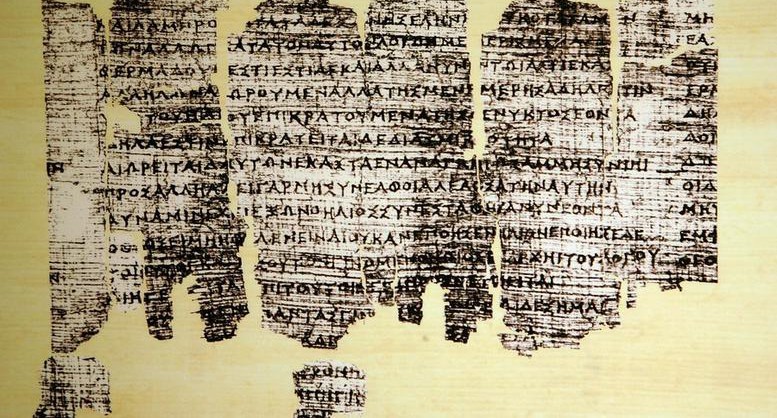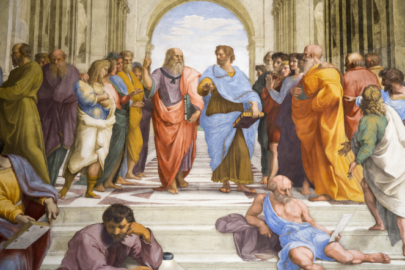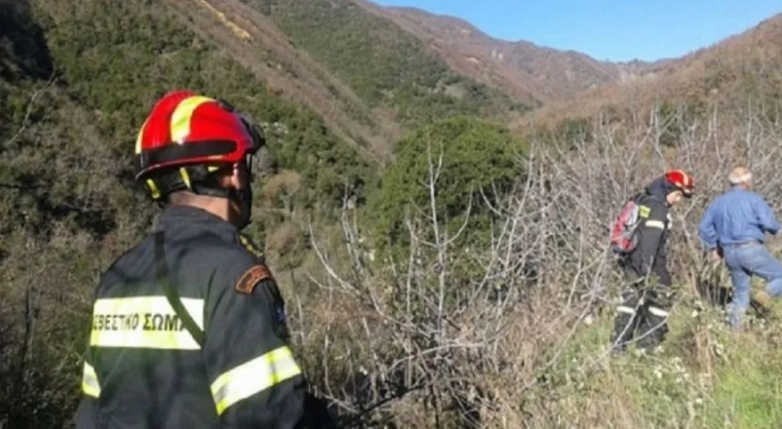The Derveni papyrus, an ancient Greek papyrus roll that could be Europe’s oldest surviving manuscript of readable quality could be included in UNESCO’s Memory of the World program. The Archeological Museum of Thessaloniki announced that the 340-320 BC text was being considered, meaning that this would be the first Greek item to be included in the program that aims to preserve the world’s documented heritage against decay.
The papyrus is a philosophical treatise and an allegorical commentary on an older Orphic poem concerning the birth of the gods. Its author is unknown, but is contested to be either Euthyphron of Prospalta, Diagoras of Melos and Stesimbrotus of Thasos.
The parchment was found in pieces in 1962 in Derveni, an area near the city of Thessaloniki in northern Greece. It was found among the remains of a funeral pyre of a tomb of the late Classical period (4th century BC). Experts believe the document was saved because of the incomplete burning. Many similar works have been lost due to Greece’s climate that doesn’t favour the preservation of papyruses.
Only 26 Of the 266 surviving fragments of the papyrus were restored. It dates back to the reign of Philip II of Macedon, but the book which was reproduced in the document is much older – possibly from 420-410 BC.
UNESCO reports:
“The Derveni Papyrus is of immense importance not only for the study of Greek religion and philosophy, which is the basis for the western philosophical thought, but also because it serves as a proof of the early dating of the Orphic poems offering a distinctive version of Presocratic philosophers.”
“The text of the Papyrus, which is the first book of western tradition, has a global significance, since it reflects universal human values: the need to explain the world, the desire to belong to a human society with known rules and the agony to confront the end of life.”
The inclusion of the document was decided by the program’s International Advisory Committee (IAC) which convened in Abu Dhabi on October 4-6.
The Archaeological Museum of Thessaloniki believes that the inclusion of UNESCO’s international list will contribute decisively to the further promotion and preservation of Greece’s tangible and intangible cultural heritage.




































